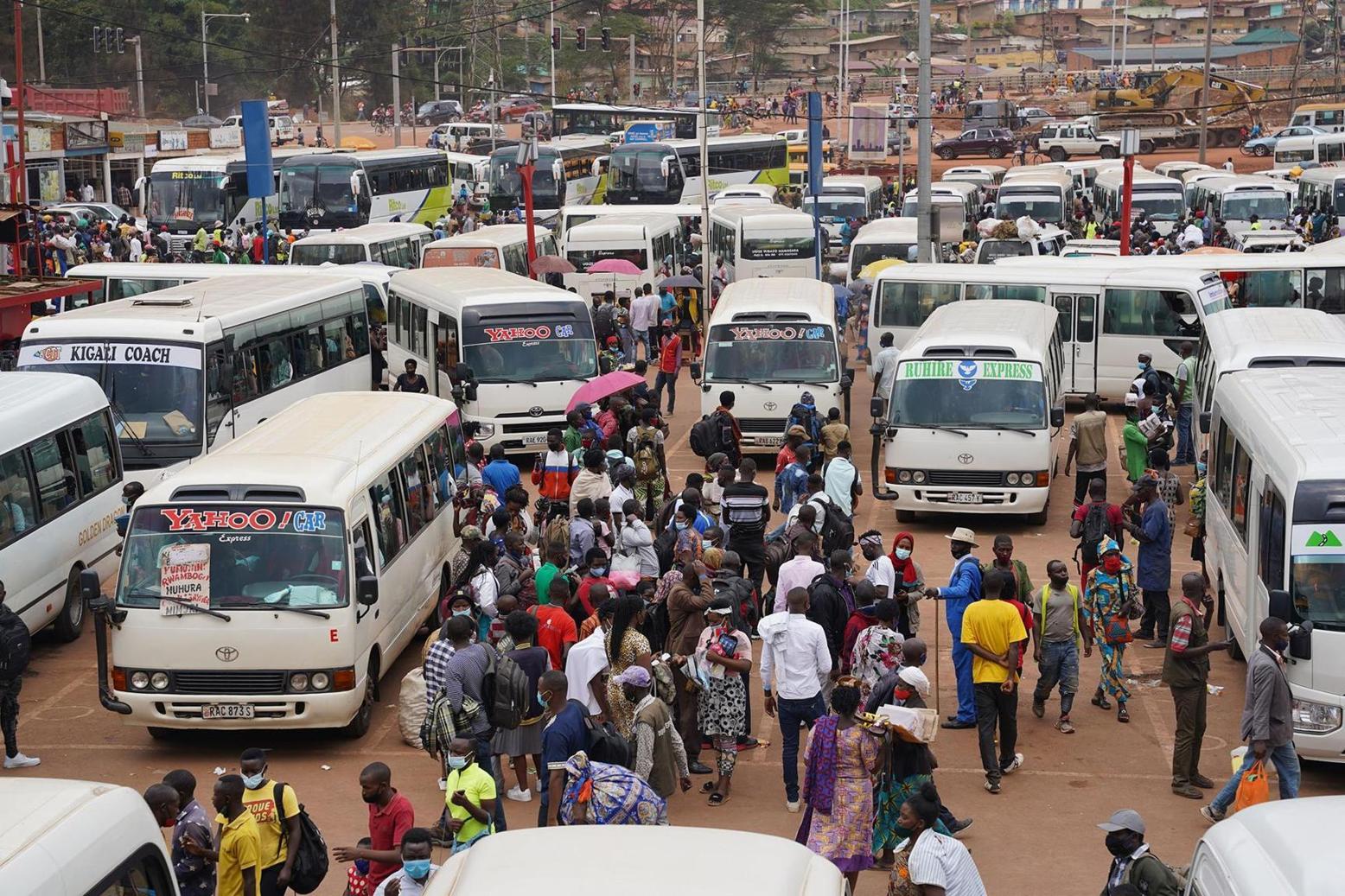Africa-Press – Rwanda. Marie Claudine, a resident in Gasabo District, recently had to jump through hoops to secure a bus ticket in order to attend an emergency back home in Gisenyi.
“It was around 6pm, and I went to Nyabugogo Bus Park to book a ticket. I tried around three transport companies and I failed to get a ticket. It was frustrating especially that I needed to travel urgently,” she narrates.
Though she later managed to travel, Claudine, just like many other commuters travelling upcountry, decry various challenges hindering transportation services.
Woes in the public transport system have continued to prevail despite projected strategies such as construction of dedicated lanes for public buses, increasing the number of passenger buses, among others.
Peter Munyemana, a resident in Muhanga District working in Kigali, said the biggest challenge is the delay in transportation.
“You cannot fail to get a bus but it takes much longer than before and of course this affects us. Because sometimes you even leave work before time because you don’t want to miss a bus, which affects our work,” he said.
Limited transport means
According to Claude Uwizeye, a ticket agent at Volcano Express, transport and bus operations have changed mainly due to the limited number of buses.
“There is a scarcity of buses in the park. Actually, last week it was worse; people have been sleeping in the park to make sure they go at least with the first bus traveling early in the morning.”
Bus operators are on the other hand complaining of losses because of the current transportation challenges.
Janvier Muhoza, an employee from Fidelity Express, said bus operators are not making profits like before, “Some companies, especially those traveling miles away, no longer travel long distances. They make short distances and a passenger is left half way to board another bus that enables them to reach their respective destinations.”
“We are selling fewer tickets than before, yet passengers are still around but there are no buses to transport them. A bus can even get damaged and it takes a long time to operate it. It’s in that time of waiting that both passengers and drivers get affected,” Muhoza said.
According to Bosco Tuyishime, Public relation of Horizon express, there are a lot of factors to consider since these buses are mostly purchased on loans, “these engines are bought on loans, and you pay insurance, GPS, bus park centres, workers, among others.
“Therefore, when you top up all the expenses and compare with the profit the bus made, you find that people are operating in a crisis,” he said.
The president of Rwanda Federation of Transport Cooperatives, Hussain Muhamad Nziza, said current challenges are highly affecting movements, hence causing a public transport crisis.
“Public commuters are victims of poor services which are affecting their daily work and activities,” he said.
According to Anthony Kulamba, Rwanda Utilities Regulatory Authority (RURA) spokesperson, the scheme of supporting public transport companies is still on, though payment sometimes delays due to issues with the data provided, “sometimes they are not well revised by the companies,” he said.
He added that there are also a number of misunderstandings among companies in terms of financial management, “but RURA will keep informing them on how the process is done. We are working closely with the Ministry of Finance and Economic Planning to provide the subsidies on time.”
For More News And Analysis About Rwanda Follow Africa-Press






